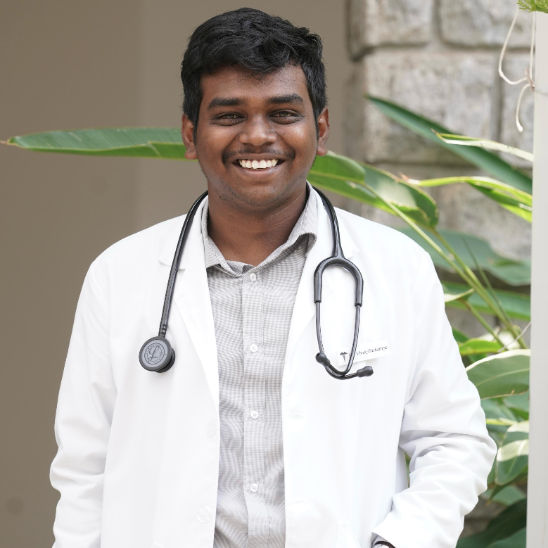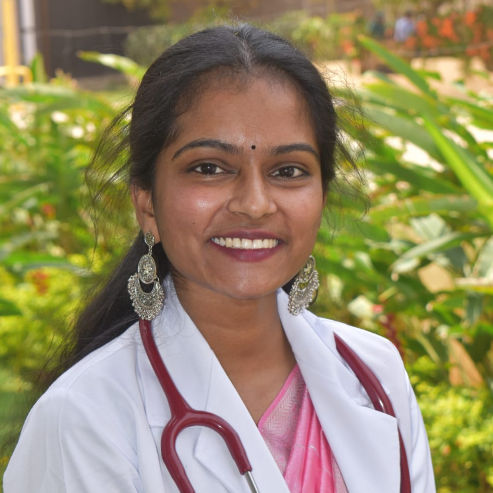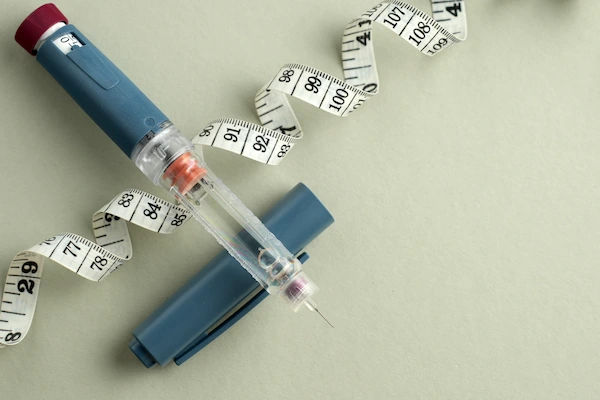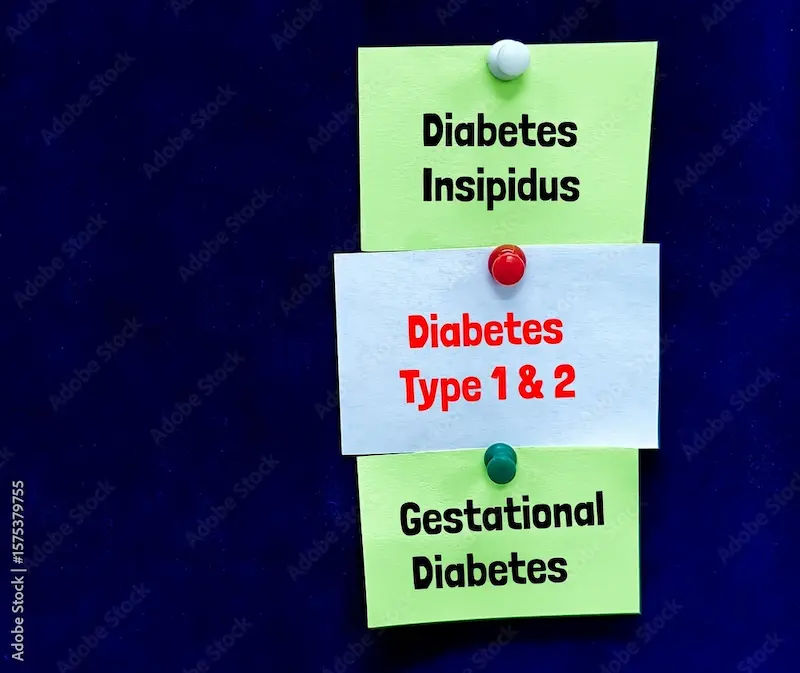Gestational Diabetes: Common Myths Vs Facts
Discover the truth about gestational diabetes with this guide on common myths and facts. Learn how it develops, its impact on pregnancy, and effective management strategies.

Written by
Last updated on 13th Jan, 2026
Gestational diabetes mellitus (GDM) is a type of diabetes that occurs during pregnancy. When the body can't create enough insulin hormone to meet the increasing demands of pregnancy, blood sugar levels rise. Unlike some other forms of diabetes, GDM tends to be short-lived after childbirth, yet it can have impacts beyond pregnancy.
Gestational diabetes affects both mother and child. But awareness can dispel myths, encourage timely diagnosis and encourage treatment to promote healthier outcomes for expectant mothers and their babies. This article provides a structured understanding of gestational diabetes, debunking myths and presenting real facts.
Common Myths about Gestational Diabetes
Despite medical advances, misconceptions about gestational diabetes still exist. Some common myths are:
Myth: Gestational Diabetes Only Affects Overweight Women
Women of normal weight or underweight can develop gestational diabetes. Risk factors, aside from body weight, include age, ethnicity, family history, lifestyle, blood pressure, cholesterol levels, triglycerides, and previous birth weight.
Myth: Eating Too Much Sugar Causes Gestational Diabetes
Eating too much sugar does not cause it. Instead, it is a result of hormonal changes during pregnancy, which affect how the body makes and uses insulin.
Myth: Gestational Diabetes Always Leads to Type 2 Diabetes
Though gestational diabetes raises a woman’s risk for subsequent type 2 diabetes, it doesn’t mean that women with gestational diabetes will definitely develop type 2 diabetes since 50% of women never do. This is a temporary condition that improves after childbirth, at which blood glucose levels return to normal.
Facts About Gestational Diabetes
Some of the key facts are discussed below:
The resistance to insulin brought on by pregnancy hormones, such as human placental lactogen, is what causes gestational diabetes.
Maternal weight, advanced age, and certain racial or ethnic backgrounds are risk factors for the development of gestational diabetes.
Additionally, a family history of diabetes and previous occurrences of gestational diabetes significantly increase the likelihood of the condition.
Gestational diabetes affects approximately 7–10% of pregnancies worldwide. Gestational diabetes mellitus (GDM) tends to show very different prevalences influenced by factors like age, body mass index, and regional disparities.
The prevalence of GDM in India had increased from 0.53% in 2015–16 to 0.80% in more recent times.
Gestational diabetes, if left unmanaged, can result in macrosomia (abnormally big baby), preeclampsia, preterm delivery, hypoglycemia, and respiratory complications. It raises the risk of future diabetes in mothers, and babies could experience problems at birth, such as hypoglycemia.
Diagnosing Gestational Diabetes
Major tests include the glucose challenge test (GCT) and the oral glucose tolerance test (OGTT).
The glucose challenge test involves the patient consuming glucose solution and blood sugar measurement after one hour.
The oral glucose tolerance test (OGTT) involves an overnight fast followed by multiple blood samples over two to three hours.
Gestational diabetics are screened between 24 and 28 weeks pregnant. Symptoms of hyperglycemia like excess thirst, frequent urination, or a dry mouth require prompt medical attention.
Managing Gestational Diabetes
Read below to know more:
Gestational diabetes is managed by keeping blood sugar as low as possible to avoid health problems.
Women with gestational diabetes are encouraged to eat low glycemic index foods, complex carbohydrates, lean proteins, and healthy fats.
Portion control and regular meals keep blood sugar levels in control.
Moderate physical exercise like walking or prenatal yoga can help increase insulin sensitivity and regulate blood sugar.
Just like exercise is an effective way to manage diabetes, exercise lowers blood glucose as it increases muscle cell glucose consumption and improves muscle cell sensitivity to insulin.
Blood glucose levels can help monitor how well gestational diabetes is controlled. One must check blood sugar once before meals and one to two hours after meals.
Complications Associated with Gestational Diabetes
High blood pressure, caesarean delivery, and type 2 diabetes are risks for mothers with gestational diabetes. These risks are reduced with careful management. The complications that babies face include excessive birth weight, jaundice, or even respiratory distress syndrome. Things can be greatly reduced if gestational diabetes is well managed.
Mother and child are both more likely later in life to develop metabolic disorders. It is associated with long-term health risks for mother and baby, including elevated risks of cardiovascular disease and type 2 diabetes, obesity, insulin resistance, and impaired neurocognition.
Preventive Measures
Healthy habits and regular medical attention are both needed to prevent gestational diabetes.
Prevention and management of gestational diabetes mellitus (GDM) are critically dependent on lifestyle modifications prior to or during pregnancy.
Pre-Pregnancy Considerations
Prevention of GDM includes maintaining a healthy body weight before pregnancy, following the weight gain guidelines, exercising regularly and eating a fibre-rich balanced diet.
Post-Pregnancy Recommendations
It's crucial to stay active in ways the body allows after pregnancy, to decrease the risk of type 2 diabetes. High-risk individuals must receive continuous education and preventive measures to be armed with the information that enables them to take preventive measures to manage the illness well.
Support and Resources
Managing gestational diabetes requires support systems and resources to keep the disease in check. The main sources of guidance include healthcare providers, including obstetricians, endocrinologists and dietitians. They contribute to tailor-made treatment planning based on individual needs.
Support groups provide emotional encouragement and practical advice. There are excellent educational resources, namely online platforms and workshops, about managing gestational diabetes.
Conclusion
With proper care and awareness, gestational diabetes is manageable. Important steps in a healthy pregnancy are debunking myths, understanding the facts, and following recommended management strategies.
Gestational diabetes myths can fuel unnecessary fear or ignorance. The dissemination of accurate information gives women the power to make informed decisions about their health and for the baby. Proactive management and use of preventive measures guarantee better outcomes for the mother and baby.
Consult Top Diabetologist
Consult Top Diabetologist

Dr. Utsa Basu
Diabetologist
14 Years • MBBS , MD
Barasat
Diab-Eat-Ease, Barasat
(75+ Patients)

Dr. Swaroopa Rani
General Physician/ Internal Medicine Specialist
9 Years • MBBS, MD (Internal Medicine)
Bengaluru
Apollo Medical Center, Marathahalli, Bengaluru

Dr. Arif Ahmed
General Physician/ Internal Medicine Specialist
9 Years • MBBS, MD (Genl. Med.)
Kolkata
MCR SUPER SPECIALITY POLY CLINIC & PATHOLOGY, Kolkata

Dr. Vivek D
General Physician
4 Years • MBBS
Bengaluru
PRESTIGE SHANTHINIKETAN - SOCIETY CLINIC, Bengaluru

Dr. Arthi S
Family Physician
3 Years • MBBS
Bengaluru
PRESTIGE SHANTHINIKETAN - SOCIETY CLINIC, Bengaluru



